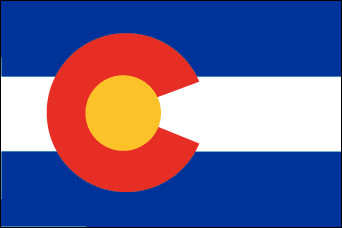By Brad Williams

Led by Democratic majorities in both the House and Senate, the Colorado General Assembly passed multiple important employment-related bills during its 2019 legislative session. Colorado’s new Democratic Governor, Jared Polis, recently signed all the bills below into law.
Equal Pay for Equal Work Act (SB 19-085): The most significant employment-related bill passed during the 2019 legislative session, this Act is intended to “ensure that employees with similar job duties are paid the same wage rate regardless of sex.” The Act applies to all public and private employers in Colorado, and prohibits paying employees of one sex a wage rate—defined as all compensation, including hourly wages, salaries, and other compensation—which is less than the wage rate paid to employees of a different sex for substantially similar work. Exceptions include pay differentials based on seniority or merit systems; systems measuring quality or quantity of production; the location where the work occurs; whether the work requires travel; and employees’ education, training, or experience, to the extent reasonably related to the work in question.
The Act prohibits employers from asking about or relying upon a prospective employee’s wage rate history in order to determine his or her wage rate. It allows aggrieved employees to sue for up to three years of backpay for unlawful pay disparities, and separately allows such employees to sue for an equal amount in “liquidated damages,” unless the employer can show its pay violations were in “good faith.” The Act creates an incentive—other than just the risk of lawsuits—for employers to conduct regular audits of their workforces to uncover pay disparities by permitting judges and juries to consider such audits (assuming they occur in the preceding two years) as evidence of an employer’s “good faith.” The Act also permits aggrieved employees to sue for their attorneys’ fees and other damages.
The Act requires employers to make reasonable efforts to post opportunities for promotions to all their employees on the same day, and separately requires all job postings—both internal and external—to disclose the hourly or salary compensation, or a range of the hourly or salary compensation, and a description of all benefits and other compensation offered to the applicant. Violations of these notice requirements can result in fines of $500 to $10,000 per violation. The Act further requires employers to keep records of job descriptions and wage rate histories for the duration of each employee’s employment, and for two years thereafter. This provision is intended to ensure accurate records for use as evidence in pay disparity lawsuits. If an employer does not have these records, and is sued for unlawful pay disparities, a judge can instruct a jury to assume that the missing records would have been favorable to the suing employee for purposes of showing pay disparities. The missing records can also be used as evidence that the employer’s pay violations were not in “good faith.” The Act takes effect January 1, 2021.
Family Medical Leave Insurance Program Act (SB 19-188): As originally introduced, this Act would have permitted all employees in Colorado to receive partial wage replacements for up to 12 weeks per year for leaves from work taken to care for a new child or a family member with a serious health condition; due to the employee’s own serious health condition; because the employee or a family member was the victim of abusive behavior; or due to needs arising from a family member’s active duty service. The wage replacements would have been funded by a statewide social insurance program (similar to unemployment and workers’ compensation) with premium costs split evenly between employers and employees. The bill would also have protected employees’ jobs during paid leave.
After concerns arose regarding the program’s costs, the Act was largely scuttled and replaced with a feasibility study which was signed into law instead. As enacted, the final Act will now require the appointment of a taskforce by July 1, 2019, which will study and report upon the feasibility of the contemplated insurance program by January 8, 2020.
Job Applicant Criminal History Inquiries (HB 19-1025): Designed to “[p]rovide people with criminal records with a more meaningful chance to compete for a job,” this Act is similar to other “ban the box” laws enacted in other states. It prohibits covered employers from stating in job advertisements or employment applications that individuals with criminal histories may not apply. It further prohibits covered employers from inquiring about or requiring the disclosure of applicants’ criminal histories in initial job applications. Exceptions include if federal, state, or local law prohibits employing a person with a specific criminal history; if the employer is required by federal, state, or local law to conduct a criminal history record check for the position; or if the position is designated by the employer to participate in federal, state, or local government programs designed to encourage the employment of people with criminal histories. The Act still permits employers to obtain publicly available criminal background reports on applicants at any time.
Job applicants cannot sue directly for violations of the Act. Instead, aggrieved individuals may report violations to the state, which will then investigate and may issue penalties. Penalties begin with a warning and order for compliance, and then escalate to $1,000 for a second violation, and $2,500 for a third and subsequent violations. The Act only covers private employers in Colorado, but Colorado already has a similar statute which applies to public employers. The Act becomes effective on September 1, 2019, for employers with eleven or more employees, and on September 1, 2021, for all private employer in Colorado.
Local Minimum Wage (HB 19-1210): Based on the idea that the “cost of living can vary significantly from one community to another in Colorado,” this Act permits local government units to establish their own local minimum wages. Empowered government units include cities, home rule cities, towns, territorial charter cities, counties, and home rule counties. The Act only permits the enactment of local minimum wages which exceed the state minimum wage; it does not permit the enactment of local minimum wages below the state-imposed floor. The Act also only permits local government units to increase local minimum wages by 15%, or $1.75, per year, whichever is greater. It requires local minimum wage changes to go into effect on the same date as scheduled statewide minimum wage changes. The Act also allows local government units to establish private causes of action so that employees can sue for violations of local minimum wage rates.
Tip Sharing Notices
(HB-1254): This Act requires Colorado
employers whose employees share tips to provide notice of tip-sharing to
patrons. The notices must be in writing—
“including by a notice on a menu, table tent, or receipt”—and must advise
patrons that “gratuities are shared by employees.” The Act goes into effect on August 2, 2019.
Brad Williams may be reached at bjwilliams@hollandhart.com.

